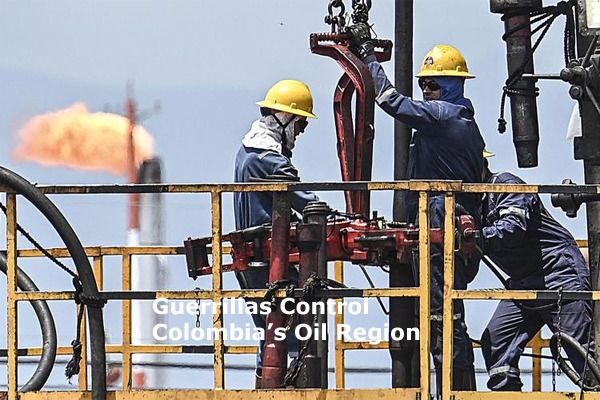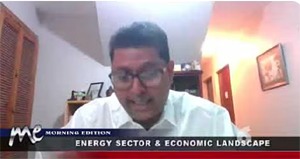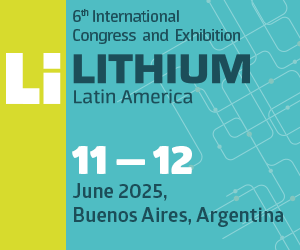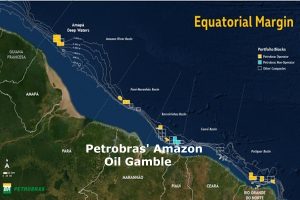Extortion gangs overrun Colombia’s biggest oil-producing region

Matthew Bristow, Bloomberg News
BOGOTA
EnergiesNet.com 05 19 2025
Jaime Cruz hadn’t heard from Colombia’s extortion gangs for more than a decade until the palm-oil farmer checked his phone one day in September 2023 and got a terrible shock.
“Revolutionary greetings!”, the WhatsApp message began.
With these words, the guerrillas announced their return to the area around Puerto Gaitan, a key agroindustrial and energy-producing region in the tropical grasslands just 140 miles from Bogota. This was followed by a demand to meet “to discuss how you can contribute to our organization.”
Cruz, a pseudonym to protect his identity from the group, was given an appointment in the village of Rincon del Indio in the guerrilla heartland on the fringes of the Amazon rainforest, more than a five-hour drive south. He says he didn’t attend, and instead hired a former special forces commando to handle his security.
Many of his neighbors did pay, however. One person who made the trip said he was met by about eight fighters in camouflage, armed with rifles. They made him ditch his car and travel for two hours along dirt tracks by motorbike to meet the guerrilla commander who negotiates annual extortion payments to the group.
Business owners who attend the meetings but fail to reach an agreement are likely to be kidnapped.
The shakedowns of Cruz and his neighbors are a sign that Colombia’s illegal armies are expanding beyond the remote mountains and jungles where they are traditionally strongest, and are penetrating formerly safe areas that are of great importance to the national economy. That’s freezing investment in a region that the finance ministry once touted as an engine of national economic development via huge agribusiness projects.
Meta province, where Cruz has his farm, produces more than half of Colombia’s crude, and tanker trucks continually roll along the unpaved roads near his plantation, throwing up dust. That’s helped give the region a gross domestic product per capita that is nearly 60% higher than the national average. The region is also a major producer of corn, rice, rubber, sugarcane, soy and beef. The number of reported extortion attempts rose 54% in Meta last year, and 11% across the country as a whole, according to data collected by Colombia’s National Business Council.
That’s caused many firms to shelve new investments in Meta, according to Clara Leticia Serrano, head of Prorinoquia, an association of companies that operate in Colombia’s eastern plains.
“We are seeing a sudden stop, because of this security question,” she said. “For now, they’re sitting on their hands to wait and see what happens.”
Guerrillas and the private armies of drug traffickers have taken advantage of the relative lack of military pressure by the government under President Gustavo Petro, who since taking office in 2022 has sought “total peace” through negotiations with several of the groups. The talks have so far failed to yield major demobilizations.
The threats to Cruz and his neighbors come from the group calling itself the 39th Front, according to Major Andrés Felipe Granada, the regional chief of the police’s anti-kidnapping and anti-extortion unit. This is controlled by a warlord known as Ivan Mordisco, a former commander with the Revolutionary Armed Forces of Colombia, or FARC, who rejected the group’s 2016 peace accord and took up arms again.
Mordisco’s base of operations is hundreds of miles further south, where the jungle makes it easier to stay hidden. The hot, cattle-raising plains around Puerto Gaitan lack tree cover, and are unsuited for guerrilla warfare. Nor is there any significant cocaine production in the area. Yet the guerrillas are strengthening their presence there anyway, as the security forces fail to counter them effectively.
“What we seeing now across the country, including in Meta, is escalating violence and the reappearance of illegal armed groups in areas where they’d been absent,” said Jorge Mantilla, a criminologist who studies Colombia’s conflict. “One of the effects of the total peace plan is the territorial expansion of these groups.”
Over the last two years the 39th Front has probably contacted “basically everyone” who owns a business near Puerto Gaitan, according to Cruz.
When Cruz didn’t respond to their WhatsApp messages, the guerrillas left a note at the gates of his operation, where the bunches of red fruit are turned into vegetable oil that will eventually be blended with diesel to power trucks, buses and cars.
He now visits his operation much less frequently, arriving unannounced and never staying in the area for more than one night before returning to Bogota.
“The fact that you can’t be there for a long time will eventually impact your business,” he said. “If you can’t be constantly supervising what’s happening there, some things are not going to work as you would like.”
In April, at least four palm oil producers in Meta were attacked by extortionists, according to a former army intelligence colonel who works as a consultant for the sector. One farm had its operations paralyzed by an assault with explosives, while another had two pieces of heavy machinery burned. Producers of other crops, cattle farmers, and sub-contractors for the oil industry are also being targeted.
“It’s holding us back in a big way because they don’t let you work with these constant threats,” said one rice farmer near the regional capital of Villavicencio. “Notes arrive telling you you have to collaborate with such-and-such a person in some strategic spot, and you know that they have you in their sights, that they are watching you.”
Other gangs are also present in the area, including the so-called Gulf Clan, the nation’s largest cocaine cartel.
Cruz says the problem in his area died down for a few months last year after the authorities captured “Duvan,” a henchman of Mordisco’s who was organizing the extortion network around Puerto Gaitan. In October, they also arrested “Jhon Naranjo,” the head of finances for the 39th Front.
Despite that, the problem has flared up again this year.
In 2016, the FARC agreed to lay down its weapons and form a legal political party, ending more than half a century of armed struggle. Then-Finance Minister Mauricio Cardenas forecast that peace would open up Colombia’s eastern plains to Brazilian-style agribusiness, helping power Asian-like levels of economic growth. The nation’s civil conflict has held back agriculture more than energy and mining, since oil facilities are more localized and easier to protect than farms, he said.
In fact, the lull in violence was short-lived, as new illegal groups such as Mordisco’s moved into the power vacuum left by the FARC, and the hoped-for “peace dividend” never materialized.
“If you have a security problem, like we’re having right now, it’s very difficult for a foreign company to invest millions of dollars if they’re not going to be able to work without paying extortion,” Cruz said.
Bloomberg.com 05 15 2025














